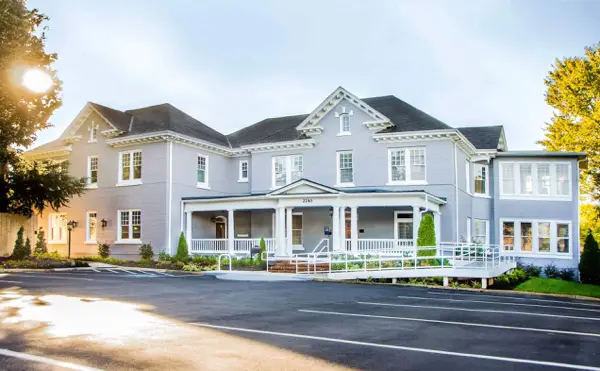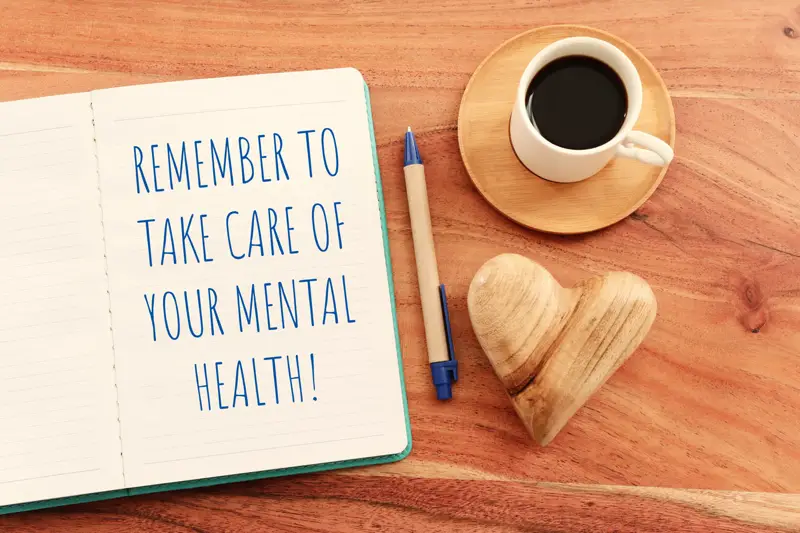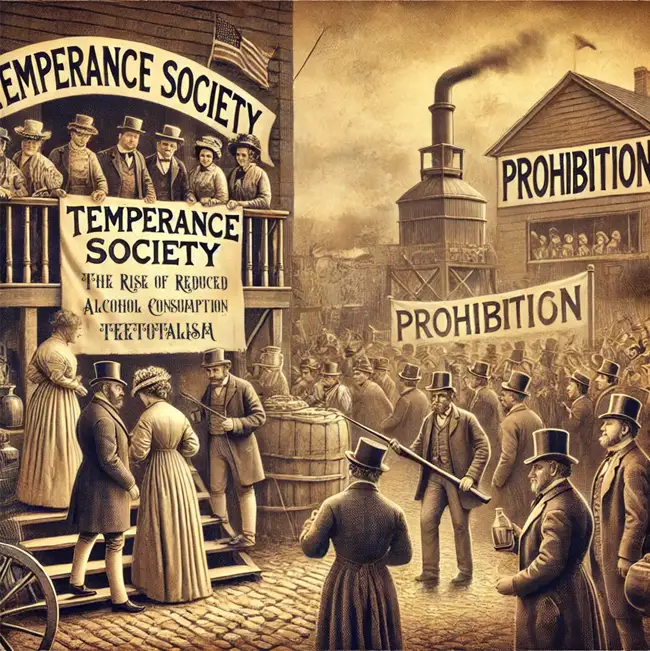Alcohol Addiction and Recovery
Alcohol addiction is a widespread problem affecting millions of people, often making them question, “Am I an alcoholic?” Recognizing the signs of alcoholism and understanding the benefits of giving up alcohol are critical first steps in the recovery process.
At Dilworth Center, our intensive outpatient program provides structured, evidence-based support for recovery from alcoholism. By fostering connection, self-reflection, and gradual personal growth, we help individuals navigate their journey toward lasting recovery. Is alcohol affecting your life or the life of someone you care about? Learn how taking the first step toward recovery can lead to lasting change.
Understanding Alcohol Addiction
The Effect Produced by Alcohol
Alcohol affects almost every organ in the body, and prolonged abuse can lead to severe health issues. The long-term effects of alcohol include liver disease, cardiovascular problems, neurological damage, and much more. Additionally, quitting alcohol abruptly without medical supervision can be extremely dangerous and even life-threatening. Alcohol withdrawal symptoms, such as seizures or delirium tremens (DTs) require professional care to ensure safety during the detox process. Seeking medical detox can provide the necessary support to safely begin the journey to recovery. For those dealing with alcoholism and mental health issues, the impact can be even more profound, exacerbating conditions like anxiety, depression, and bipolar disorder. Understanding these effects is important for anyone wondering, “Am I an alcoholic?” or “What are the signs of alcoholism?”
The History of Alcoholism
Alcohol addiction has a long and complex history, affecting various cultures throughout the centuries. In ancient civilizations like Greece and Rome, excessive drinking was often associated with social and religious practices. However, the negative consequences of alcohol misuse were also noted, leading to early attempts at regulating consumption.
In the 18th and 19th centuries, the temperance movement gained momentum in the United States and parts of Europe, advocating for reduced alcohol consumption and, eventually, total abstinence. This period saw the establishment of temperance societies and the promotion of “teetotalism.”
Despite these efforts, alcohol addiction remained a significant issue. The early 20th century saw the advent of Prohibition in the United States, a nationwide constitutional ban on the production, importation, transportation, and sale of alcoholic beverages from 1920 to 1933. While intended to curb alcohol abuse, Prohibition ultimately led to illegal production and distribution of alcohol, often exacerbating the problem.
The modern understanding of alcohol addiction and its treatment began to take shape in the 1930s with the founding of Alcoholics Anonymous (AA) in 1935 by Bill Wilson and Dr. Bob Smith. AA introduced the concept of mutual support groups and the 12 steps of AA, which have since become foundational in addiction recovery programs worldwide. The 12 steps and 12 traditions provided a structured approach for individuals seeking to overcome their addiction and maintain sobriety.
Today, alcohol addiction is recognized as a chronic disease that can be managed with the right support and treatment. The historical struggles with alcoholism and the evolution of treatment approaches, including the birth of AA, highlight the ongoing need for effective solutions and support for those affected by alcohol abuse.

Curious About Alcoholism?
Reflecting on your relationship with alcohol can be a first step toward understanding its impact on your life—ask yourself the following questions to gain clarity.
- Do you find yourself unable to stop drinking even though you want to?
- When you start drinking, is it difficult to stop?
- Have you stopped drinking before, only to find you couldn’t stay sober?
- Do you depend on alcohol to feel comfortable in social settings, or do you often drink alone?
- Have you ever hidden your drinking from family members or friends?
- Do you frequently feel restless, irritable, or dissatisfied with life?
- Does alcoholism or addiction run in your family history?
Answering ‘yes’ to any of these questions could indicate a problematic relationship with alcohol, and seeking professional support might be the next step toward understanding and addressing these challenges.
Consider contacting our team to explore the answers to these questions.
The Recovery Journey
Recovery is Possible
Many people have successfully overcome their dependence through structured treatment programs and support systems. Alcohol counseling and outpatient treatment programs offer the necessary guidance and support. Whether you’re dealing with alcohol withdrawal symptoms or questioning your relationship with alcohol, acknowledging the issue and seeking help is the first step toward recovery. The benefits of quitting alcohol are numerous, including improved physical health, better mental clarity, and enhanced relationships.

Recovery Expectations
Understanding what to expect during recovery can help individuals stay committed and motivated. While every individual may have slight variations of this process, this is a good overview of what to expect.

The First 30 Days : Detox and Initial Adjustment
In the first 30 days, the focus is on detoxification due to alcohol withdrawal, such as night sweats, withdrawal headaches, anxiety, etc. It is highly recommended to undergo this process at a detox center, as detoxing from alcohol at home can be dangerous. Formal detoxification involves medical supervision to ensure safety and comfort. While we sometimes refer individuals to local, trusted detox centers, not everyone needs to go through a detox before beginning treatment. Patients often participate in alcohol counseling sessions to begin addressing the psychological aspects of addiction. Understanding the best way to stop drinking and developing a structured routine are key steps in this phase. The support from an addiction treatment center and the use of alcohol withdrawal medication can significantly ease the transition into sobriety.

Days 31-90: Building a Foundation
Between days 31 and 90, the focus is on building a strong foundation for long-term recovery. This involves participating in an intensive outpatient program (IOP) at a facility such as Dilworth Center. During this phase, individuals are encouraged to participate in Alcoholics Anonymous and engage in structured therapy sessions. Many treatment centers utilize 12-step facilitation to bridge the program of Alcoholics Anonymous (AA) with the treatment process. Techniques for preventing relapse are also introduced to help individuals recognize triggers and develop strategies to cope with them. This phase is also crucial for addressing any co-occurring mental health issues such as depression or anxiety, which often accompany alcoholism.

Days 90-180: Strengthening Recovery Skills
Between days 90 and 180, maintaining sobriety becomes critical. Individuals focus on strengthening recovery skills and continuing therapy. Participation in AA meetings and following the 12 steps of Alcoholics Anonymous help reinforce sobriety. During this time, there is often more in-depth work on personal issues, such as trauma or relationship problems, through counseling. Developing a sober network and engaging in sober living arrangements can provide additional support. Addressing the signs of alcoholism and celebrating milestones can provide motivation throughout the journey.

Days 180-365: Achieving Long-Term Goals
From days 180 to 365, the focus is on establishing new habits and achieving long-term recovery goals. Individuals continue to take part in relapse prevention programs and seek ongoing support from addiction treatment centers. The benefits of quitting drinking become more apparent, with significant improvements in physical health, mental well-being, and personal relationships. Engaging in activities that promote a healthy lifestyle, such as exercise and hobbies, is encouraged. Dilworth Center is located in the Dilworth neighborhood of Charlotte, NC. Dilworth Center offers comprehensive programs to support long-term recovery for professionals, adults, adolescents and young adults.
Please Note: This process describes a broad overview of recovery timelines and may not match your exact experience.
Beyond the First Year
Maintaining sobriety beyond the first year requires ongoing effort and support. Attending AA meetings, building a sober network, and embracing a healthy lifestyle are key. Comprehensive treatment plans are essential for addressing co-occurring issues. Long-term recovery involves creating a fulfilling, alcohol-free life. The benefits of quitting drinking extend beyond physical health, including improved mental well-being and enriched personal relationships. In Charlotte, NC, Dilworth Center offers many programs to support long-term recovery.

Family and Support
Family Support
Family support is crucial in the recovery process for individuals dealing with alcohol addiction. At Dilworth Center, we recognize the importance of involving loved ones in the treatment journey. Families can take part in our family therapy sessions, which are designed to educate them about addiction, improve family communication, and provide emotional support. It is also recommended families attend Al-Anon meetings in Charlotte, NC. These meetings can offer a supportive community for families dealing with a loved one’s alcoholism.
Recognizing the signs of alcoholism in a family member and encouraging them to seek help at an alcohol treatment center or an addiction treatment center can be important steps toward recovery.

Dilworth Center Services
Recovering with Dilworth Center
At Dilworth Center, we are committed to providing personalized addiction treatment services to meet the specific needs of each individual. Our outpatient rehab center, located in the heart of the Dilworth neighborhood in Charlotte, NC, offers a wide range of services to support recovery at all stages. While we do not provide in-house detox services, we collaborate with local detox centers to ensure a safe and seamless transition into our care. Our programs, including intensive outpatient programs (IOP) and relapse prevention, are based on evidence-based practices. Our team of experienced professionals is dedicated to guiding patients through their recovery journey, offering support and expertise every step of the way. Whether you need help with alcohol addiction, drug addiction, or co-occurring mental health issues, Dilworth Center is here to help you achieve lasting sobriety.

Take the First Step Toward Lasting Alcohol Recovery
Are you ready to address alcohol addiction? Our expert team at Dilworth Center is here to support you on your path to sobriety. Discover personalized treatment plans that empower long-term recovery. Please don’t hesitate any longer. Consider reaching out today to start your journey toward a healthier life.

Dilworth Center Treatment Programs
Our treatment programs incorporate evidence-based therapies such as 12-Step Facilitation, Cognitive-Behavioral Therapy (CBT), Motivational Interviewing, and are tailored to meet the individual needs of each person. Our team includes Clinical Trauma Professionals, who integrate trauma-informed care into the treatment process. This ensures a supportive and empowering environment where people can address underlying challenges, including trauma, and co-occurring mental health conditions without feeling overwhelmed. Our drug and alcohol rehabilitation program addresses both the psychological and physical aspects of addiction.

Adult Intensive Outpatient Program (IOP)
At Dilworth Center, we offer an Adult Intensive Outpatient Program (IOP) tailored to provide flexible and effective treatment for individuals dealing with alcohol addiction. Our adult rehabilitation center provides a structured environment where patients can receive comprehensive care while managing their daily responsibilities. This program is ideal for those who need support but do not require 24-hour supervision.
Our Adult IOP focuses on helping patients understand the root causes of their alcohol addiction and develop the skills needed for long-term recovery.
For those seeking outpatient drug rehab centers nearby, Dilworth Center is a leading provider of addiction treatment. Our commitment to excellence and patient-centered care makes our outpatient addiction rehab one of the top choices in the region.

Young Adult Intensive Outpatient Program (IOP)
Our Young Adult Intensive Outpatient Program (IOP) at Dilworth Center is designed to meet the specific needs of young adults who are navigating life while dealing with alcohol addiction. Our program offers a supportive and structured environment, allowing young adults to receive effective treatment without major disruptions to their daily lives.
Our young adult rehab emphasizes the development of coping strategies, resilience building, and the establishment of a strong foundation for long-term recovery. Group therapy sessions provide peer support, while individual counseling ensures personalized care. Conveniently located in Charlotte, NC, our center is easily accessible for those seeking young adult drug treatment centers. By delivering comprehensive care tailored to the unique challenges faced by young adults, we assist our patients in transitioning to a sober and fulfilling life.
Join our program and take the first step toward recovery at one of the leading young adult drug treatment centers.

Teenager Intensive Outpatient Program (IOP)
At Dilworth Center, our Adolescent Intensive Outpatient Program (IOP) is tailored for teenagers dealing with alcohol addiction. Our program provides a structured and supportive environment where adolescents can receive comprehensive care while continuing their education and daily activities.
Our teenager rehab is focused on helping young individuals develop healthy coping mechanisms, improve self-esteem, and build a foundation for long-term recovery. Group therapy sessions offer a peer support network, while individual counseling ensures personalized attention and care. Located in Charlotte, NC, our center is easily accessible for families seeking rehabilitation for teens. By offering specialized care that meets the unique needs of adolescents, we empower our young patients to overcome addiction and lead healthier, sober lives.

Family Program
At Dilworth Center, we recognize that addiction impacts not only the individual but also their entire family. Our Family Program is tailored to offer comprehensive support and therapy to families dealing with the challenges of a loved one’s addiction. Through our family addiction support services, we provide various resources to help families understand addiction, enhance communication, and cultivate a supportive home environment.
Our family addiction therapists work closely with family members to address their concerns, educate them about addiction, and support the family’s recovery journey. This program consists of group therapy sessions, educational workshops, and individual counseling, all designed to strengthen family connections and encourage collective healing.
By taking part in our family addiction therapy sessions, families acquire valuable insights and skills to effectively support their loved ones. Situated in Charlotte, NC, Dilworth Center offers a nurturing and empathetic setting where families can heal together. Our commitment to including families in the recovery process is a fundamental aspect of our approach, ensuring that everyone affected by addiction can discover hope and healing.

Co-Occurring Mental Health Treatment
At Dilworth Center, we understand the importance of addressing both addiction and underlying mental health issues. Some individuals need integrated care for co-occurring disorders. As one of the leading dual diagnosis treatment centers, we offer comprehensive care that addresses both substance use and mental health conditions simultaneously.
Our approach combines evidence-based therapies and personalized treatment plans. Our experienced team works closely with patients to develop strategies that manage both aspects of their dual disorders. As a dual disorder treatment center, we provide specialized care to ensure that patients receive the holistic support they need for a successful recovery.
Patients at our dual diagnosis addiction treatment center participate in individual therapy, group sessions, and family therapy sessions. These elements are designed to help individuals build coping skills, improve emotional regulation, and achieve long-term sobriety. Located in Charlotte, NC, Dilworth Center offers a safe and supportive environment where individuals can focus on healing and recovery.

Relapse Prevention
Our Relapse Prevention Program is an essential part of our comprehensive addiction treatment services. We understand that staying sober requires continuous effort and support, which is why we focus on creating personalized relapse prevention plans for each of our patients. These plans are customized to address the specific triggers and challenges that individuals may encounter during their recovery journey.
Our program incorporates a range of relapse prevention strategies aimed at helping patients recognize early warning signs of relapse and implement effective coping mechanisms. Following the Gorski Model, our certified relapse prevention therapists provide relapse prevention therapy that equips individuals with the tools needed to maintain long-term sobriety. Through individual counseling and group therapy sessions, patients learn to identify their triggers, manage stress, and build resilience.
This program is specifically designed for patients who have completed our Intensive Outpatient Program (IOP), ensuring continuity of care and ongoing support. Relapse prevention therapy at Dilworth Center includes education on the nature of addiction, establishing a strong support network, and continuous monitoring and adjustment of relapse prevention plans. Situated in Charlotte, NC, our center offers a supportive environment where patients can focus on building a stable and healthy life free from addiction.














